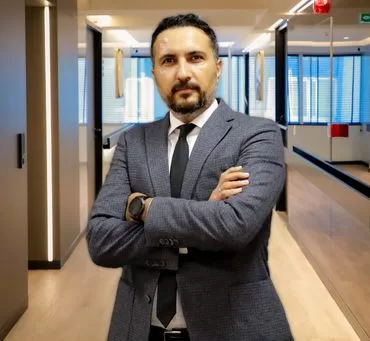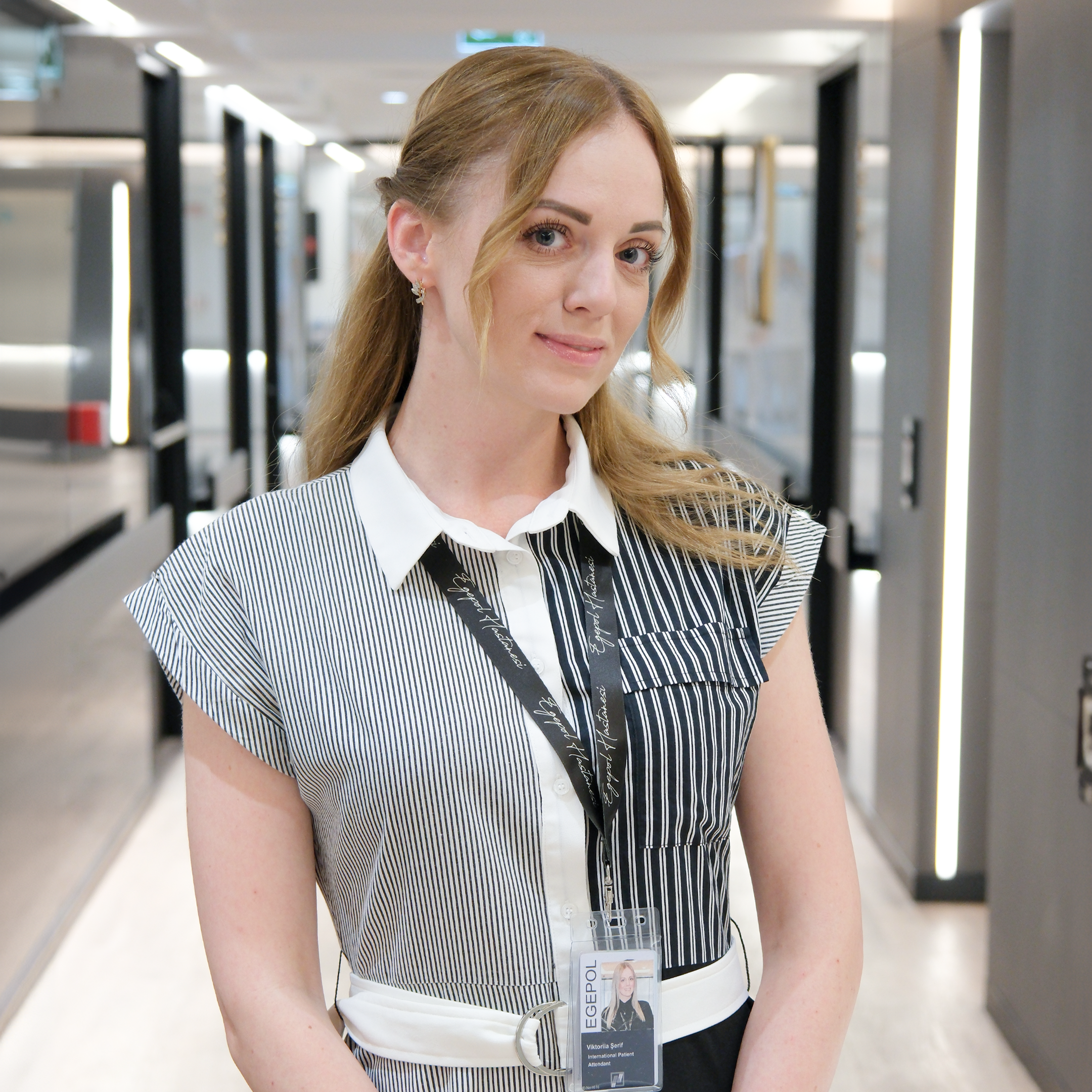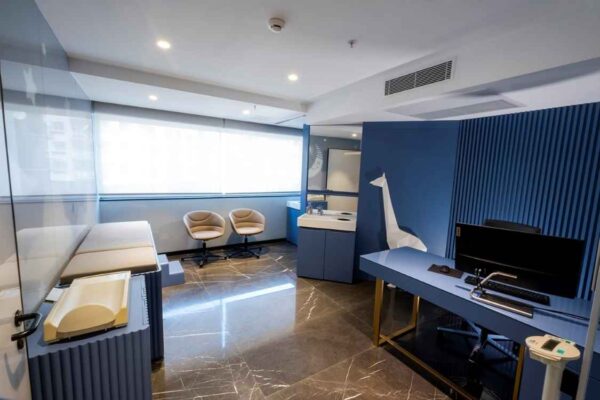Floaters, those little, seemingly innocuous specks or web-like patterns that meander across our vision, can frighten and annoy a lot of people. Age-related changes in the vitreous humor of the eye, the gel-like material that fills the eyeball, can cause a variety of irritations. Even though floaters are typically not hazardous, some people may feel that they severely lower their quality of life, which inspires them to look for a cure.
Vitreolysis, a non-invasive therapy created to alleviate the symptoms of floaters, is one of the innovative procedures that is growing in popularity. The prevalence of floaters and vitreolysis therapy in Turkey, as well as the cost in relation to other nations and conformity with European quality standards, will all be assessed by this study. Additionally evaluated will be the effectiveness of Turkish medical schools and practitioners.
Causes of Floater
Understanding the underlying causes of floaters is crucial before getting into the complex specifics of the Vitreolysis procedure in Turkey. As we age, the vitreous humor, a clear, jelly-like material that fills the eye, changes, giving the appearance of floating objects. Aging-related changes might cause the vitreous humor to become more liquid and form clumps or strands. Floaters appear in the field of vision as a result of the shadows that these clusters cast on the retina. Floaters can also be brought on by trauma, inflammation, and more serious eye diseases such retinal detachment. However, the main factor causing floaters is aging-related changes.
One might classify these aging-related changes to the vitreous humor as a typical aging sign. The vitreous humor transforms throughout time, becoming more liquid and exhibiting regions of denser collagen. The visual field can identify these areas, also referred to as “floaters,” since they create shadows on the retina. Even though floaters are frequently not dangerous, as people age, they can become more noticeable and annoying, which may lead them to investigate alternate treatment options like vitreolysis.
Vitreolysis Treatment
Vitreolysis, also known as laser vitreolysis, is a minimally invasive therapy that can be used to treat floaters. To find and remove the floaters from the vitreous fluid, a laser created especially for the job is employed. When the eye naturally absorbs the dissolved particles, the visual disruptions brought on by floaters are eventually diminished or removed. When floaters considerably reduce a person’s quality of life, interfere with everyday activities, or create psychological anguish, vitreolysis is frequently taken into consideration.
Turkish vitreolysis therapy complies with global ophthalmology norms. A thorough examination of the patient’s eyes, which will include a determination of the degree of floaters and their effect on vision, is what patients interested in this surgery in Turkey may anticipate. Professional ophthalmologists in Turkey perform Vitreolysis with the use of modern laser technology, ensuring accuracy and efficacy.
Turkish Medical Schools’ Standards
The Turkish healthcare system is well-established, with many medical schools and a huge number of highly skilled medical professionals. These institutions feature cutting-edge infrastructure and have made substantial strides in a variety of medical specialties, including ophthalmology. Ophthalmological procedures are just one of the many medical operations that people from all over the world travel to Turkey for. The medical tourism sector is booming in Turkey.
The top ophthalmology facilities in Turkey follow strict guidelines for the care and security of its patients. They spend money on state-of-the-art equipment and employ board-certified ophthalmologists. Patients can anticipate a complete evaluation of their eye health to make sure the Vitreolysis procedure is suitable for their individual requirements.
Knowledge of Turkish Physicians
Any medical procedure should be thoroughly examined before starting, especially if it will injure delicate structures like the eyes. Most Turkish doctors hold advanced degrees and have access to cutting-edge ophthalmic technology. Patients must do their homework and select a doctor who has a proven track record of successfully administering Vitreolysis treatments because the standard of care can differ from hospital to hospital.
The proficiency of Turkish ophthalmologists in the vitreolysis procedure is well renowned. They go through a rigorous training program and stay current with industry changes. Turkish patients seeking medical attention might feel secure in their doctors’ knowledge and trust that they are in capable hands.
Price Evaluation Against Other Nations
An important benefit is that vitreolysis and floater removal are priced similarly in Turkey to many Western nations. Ophthalmology surgeries and other medical procedures usually cost less in Turkey than they do in Europe or North America. Due of its accessibility, Turkey has become a popular travel destination for people seeking low-cost, high-quality healthcare.
Due to the possible cost reductions, people frequently come to Turkey for vitreolysis for floaters. People should use prudence and make sure that receiving higher-quality care does not entail paying more. When contemplating receiving medical care overseas, it’s imperative to strike a balance between cost and quality.
European Quality Standards Compared To Turkey
It is crucial to take into account whether Turkish medical facilities uphold European quality standards when assessing Floaters and Vitreolysis treatment in Turkey. In order to ensure patient safety and high levels of care, European nations have strict rules and standards for healthcare organizations and activities.
To draw patients from outside, many Turkish healthcare facilities strive to meet or surpass European quality standards. To ensure that their facilities are on par with the best in Europe, they spend on infrastructure, personnel training, and accreditation. When seeking vitreolysis treatment in Turkey, patients can look for facilities that have been acknowledged for their dedication to quality and safety, adding another degree of assurance.
Conclusion
Turkey is a possibility for anyone looking for relief from the visual disturbances brought on by floaters, to sum up. Ophthalmology-focused Turkish medical schools have made considerable advancements, and the country today has a highly skilled medical workforce. Patients must put quality and safety first when selecting a healthcare provider, even if healthcare costs in Turkey are frequently lower than in many Western nations.
Those considering Vitreolysis therapy in Turkey should investigate medical facilities, look for qualified doctors, and confirm compliance with European quality standards in order to make an informed decision. Patients can receive high-quality medical care in Turkey and the desired reduction in floaters by balancing cost and quality. The success of vitreolysis therapy in Turkey ultimately depends on educated patient decisions and meticulous provider selection.
FAQs
The local currency of the Republic of Turkey is the Turkish Lira. Our patients can convert their cash from exchange offices to Turkish Lira.
Our patients can withdraw money in Turkish Lira, Euro and Dollar through ATMs in Turkey. You can easily withdraw money with foreign language options available at ATMs.
Foreigners can use their own vehicles with the obligation to carry their own driver's license, vehicle license and passport with them. Vehicles are driven on the right side of the road in Turkey.
The sockets in Turkey are dual like the sockets used in Europe.
If you have your phone line open for use abroad before coming to Turkey, you can use your own operator as well as local GSM operators.
Our Team
Our Hospital
Atilla, Halide Edip Adıvar St.
No:57, 35270 Konak/İzmir
































